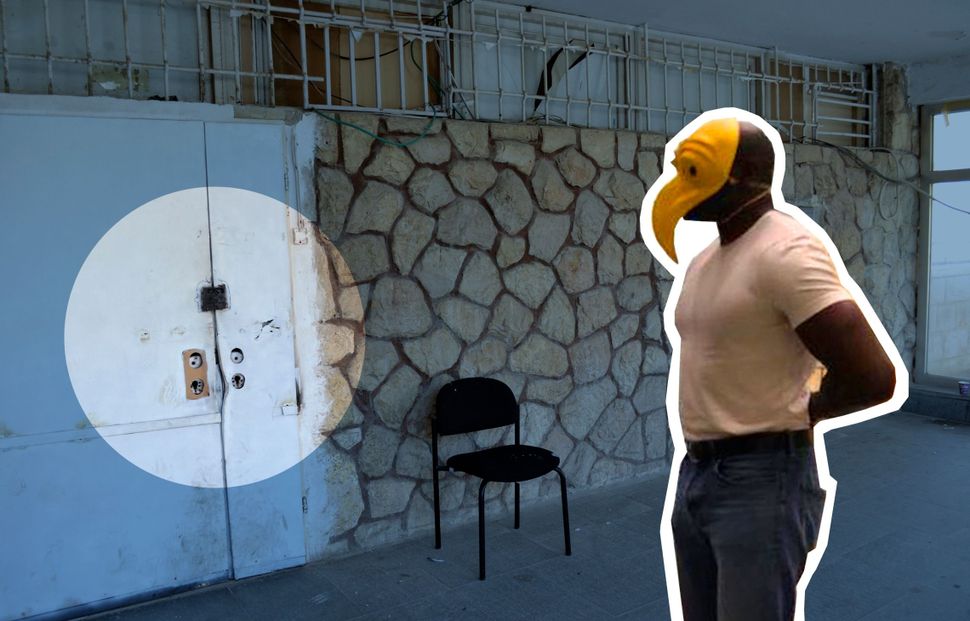Canary Mission Dumped By Diller Foundation, But Critics Say It Doesn’t Go Far Enough

Image by Nikki Casey
One of the U.S. charities that the Forward exposed as a funder of the online blacklist Canary Mission is trying to distance itself from the website, but alumni of its teen program say it isn’t going far enough.
In a letter, senior staff of the Helen Diller Family Foundation acknowledged the foundation’s grant in support Canary Mission, and said it would not be renewed. Yet while the letter condemned “any organizations and ideologies associated with sinat chinam (baseless hatred),” it did not explicitly condemn Canary Mission, nor did it say that the foundation regretted the grant.
The Diller foundation sent the letter on October 11, the day after dozens of alumni of a teen leadership program it operates published an op-ed in the Forward calling on the foundation to “do teshuva,” or repent, for making the Canary Mission grant.
The alumni of the teen fellowship who spearheaded the op-ed told the Forward that the foundation’s response was welcome, but insufficient.
“They still haven’t publicly apologized, and they haven’t acknowledged the harm that was done by their actions or [said] how they would repair it,” said Ophir Gilad, who participated in the Diller fellowship in 2013 and 2014. “They said, ‘We aren’t funding these organizations.’ And that was that.”
In early October, the Forward reported that the Diller foundation, which is controlled by the Jewish Community Federation of San Francisco, had made a $100,000 grant in support of Canary Mission in 2016.
Canary Mission, which has operated in strict secrecy since its inception in 2015, posts political dossiers on undergraduates who are critical of Israel. It has drawn increasing criticism in recent months, including from pro-Israel students who say its work is counterproductive. Canary Mission’s defenders say it is a legitimate weapon against anti-Semitism.
In its letter, the Diller foundation said that the 2016 grants supporting Canary Mission and an Israeli charity called Regavim, which files lawsuits to stop Palestinian construction in the West Bank, were “made years ago,” and that the foundation “has no intent whatsoever to renew them in the future.”
The letter refers to the “next generation of Diller family members” being committed to “universal and inclusive” values. Sanford Diller, who created the foundation, died early in 2018; his daughter, Jackie Safier, is now president of the board.
The Diller executives who signed the letter, Jen Smith and Liat Cohen Raviv, did not respond to questions about the letter.
“It didn’t feel like they were responding to the things we talked about in the letter,” said Aviva Herr-Welber, another alumna of the Diller teen leadership program who orchestrated the Forward op-ed. “I feel kind of disappointed they didn’t address what we were asking them.”
In their op-ed, the alumni of the Diller teen program had called the funding of Canary Mission and other groups a “severe betrayal of our trust,” and asked Diller to make grants to groups that combat Islamophobia and racism in equal amounts to the grants made to Canary Mission and Regavim. Ninety alumni of the teen program have signed on to the letter, according to its organizers.
“They say they’re developing the next generation of Jewish leaders,” Herr-Welber said of the Diller foundation. “If that is built on this base of Islamophobia, isolation, dividing Jewish communities, racism – what can be our hope?”
While Canary Mission’s donors are beginning to address their funding decisions in the wake of the Forward’s reporting, the Israeli nonprofit that the Forward linked to Canary Mission is also coming out of the shadows. Megamot Shalom, which the Forward revealed in early October appears to operate Canary Mission, seems to have set up a website less than two weeks after the Forward first uncovered its name.
The site describes Megamot Shalom’s operations in general terms, and lists the names of no staff or board members, some of which the Forward exposed in a story published last week.
“We are an Israeli non-profit association which advises and contributes towards pro-Israel projects and organizations in Israel and abroad,” the site says.
Canary Mission, meanwhile, has faced pushback online. The blacklist’s main Twitter handle fell silent on October 10. On October 24, the site announced that it had been locked out of its Twitter account for violating Twitter’s rules banning “hateful conduct.”
“We do not allow people to promote violence against or directly attack or threaten people on the basis of race, ethnicity, national origin, sexual orientation, gender, gender identity, religious affiliation, age, disability, or disease,” the service told Canary Mission, according to a screenshot Canary Mission posted.
On Thursday, JNS reported that the site’s Twitter handle had been unlocked. The handle resumed tweeting that day.
Correction: In an earlier version of this story, Ophir Gilad’s name was misspelled.
Contact Josh Nathan-Kazis at [email protected] or on Twitter, @joshnathankazis
A message from our Publisher & CEO Rachel Fishman Feddersen

I hope you appreciated this article. Before you go, I’d like to ask you to please support the Forward’s award-winning, nonprofit journalism so that we can be prepared for whatever news 2025 brings.
At a time when other newsrooms are closing or cutting back, the Forward has removed its paywall and invested additional resources to report on the ground from Israel and around the U.S. on the impact of the war, rising antisemitism and polarized discourse.
Readers like you make it all possible. Support our work by becoming a Forward Member and connect with our journalism and your community.
— Rachel Fishman Feddersen, Publisher and CEO





























